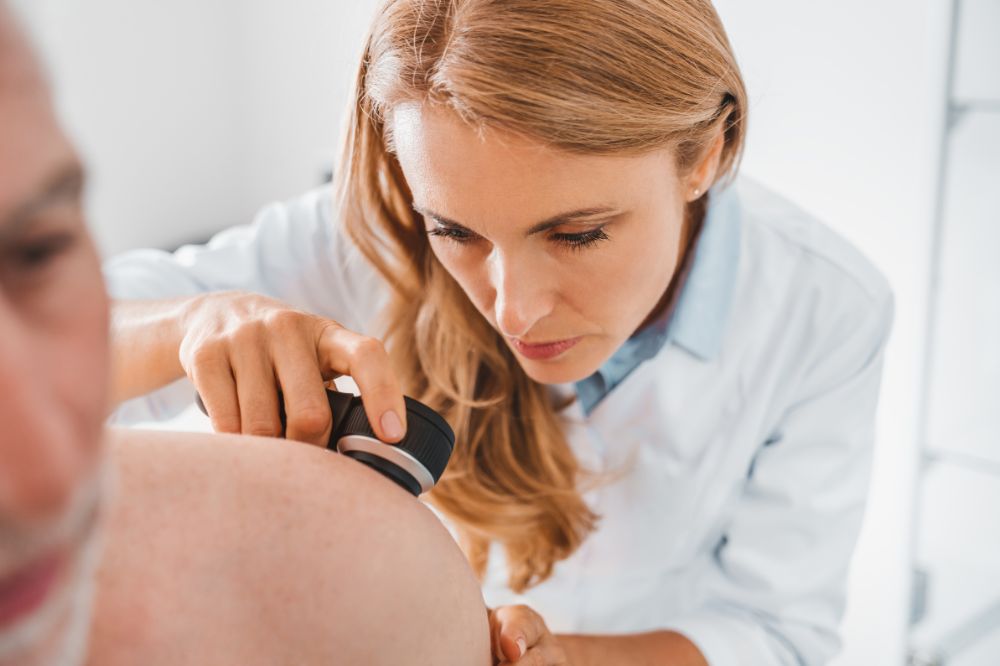Official statistics reveal increase in non-melanoma skin cancer in Wales

Cases of non-melanoma skin cancer (NMSC) in Wales have risen by over seven percent in the last four years, new statistics have revealed
The data from Public Health Wales found that cases of NMSC – the most common form of cancer in Wales – have increased by 7.1 percent between 2016 and 2019 making it the highest rate of all the UK nations.
NMSC made up 43 percent of all new cases of cancer in Wales in 2019, with 15,102 first occurrences, compared to a total of 20,058 cases of all other types of cancer combined.
After adjusting for differences in age, the incidence rate is two-and-a-half times higher than prostate cancer, which has the next highest rate.
The main factor that causes NMSC is long term exposure to the sun, and the highest proportion of cases are in those over 65.
It usually develops in areas of the body that are most exposed to the sun, such as the head, face, scalp and neck.
Unlike many other cancers, there’s less risk that NMSCs will spread to other parts of the body, although this can still happen.
This means that if they are diagnosed early, most cases can be treated successfully.
Risk
Professor Dyfed Wyn Huws, Director of the Welsh Cancer Intelligence and Surveillance Unit (WCISU) at Public Health Wales, said: “These new figures show us just how common non-melanoma skin cancer is in Wales.
“NMSC is somewhat unusual in that it has a different profile to many other cancers – for example, it is more common in people who live in more affluent areas, with the incidence in people living in the least deprived fifth of areas in Wales being 26 per cent higher than people living in the most deprived fifth.
“It is a concern to see the increase in numbers of NMSC and more work is needed to identify exactly why this is happening, especially in Wales.
“There are a few simple steps that we can all take to reduce the risk of skin cancer. While time spent outdoors is good for us, too much time exposed to the sun increases our risk.
“We recommend staying out of the sun during the hottest part of the day and keep babies out of direct sunlight at all times.
“Wear a hat, clothing that covers up your arms and legs, and sunglasses if you’re outdoors from mid-morning to mid-afternoon (even if it’s overcast in summer) and use a high factor sunscreen of at least SPF30, especially if you have paler skin.
“In addition, people with certain health conditions such as previous skin cancer, psoriasis, inflammatory bowel disease, and HIV, should take extra care, as the evidence suggests that they have a greater risk of NMSC.”
“It’s best to avoid sunbeds to get a tan, if possible.
“You should see your GP if you have marks on your skin which grow, bleed, change in appearance in any way or never heal completely or form a scab that falls off and then grows again.
“Any existing moles that change in size, shape, colour or texture also need to be seen by your GP.”
Support our Nation today
For the price of a cup of coffee a month you can help us create an independent, not-for-profit, national news service for the people of Wales, by the people of Wales.







““Any existing moles that change in size, shape, colour or texture also need to be seen by your GP.” “..if it’s an emergency, you will have to phone at eight a.m.” “Can I get a standard appointment?” ” ….no there are no appointments.” “What do you mean?” “There are no appointments.” “What….ever?” “The appointments are released on Monday and they are all gone.” “So if I phone up on Monday I will get an appointment?” “No.” …In the meantime, we are being told we should pour more funding into education to ensure that children in Cymru keep repeating “Welsh Language”… Read more »